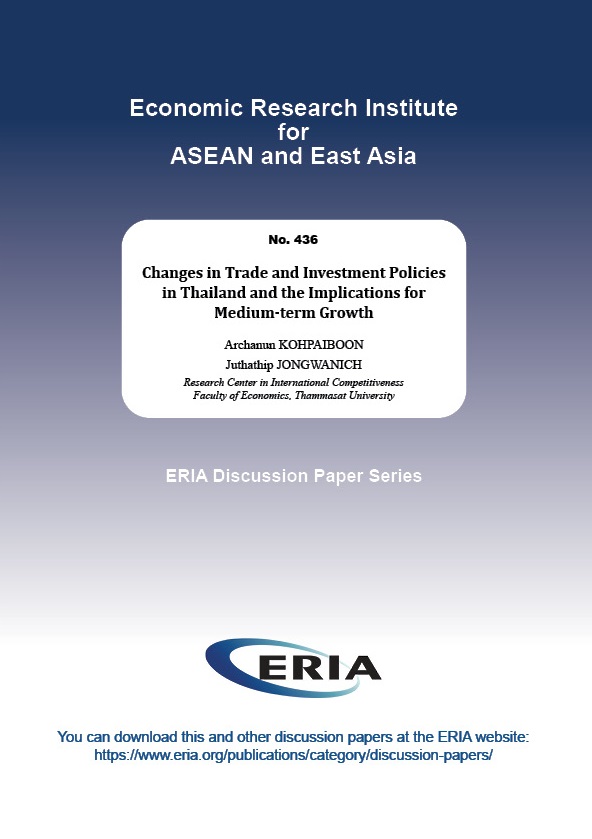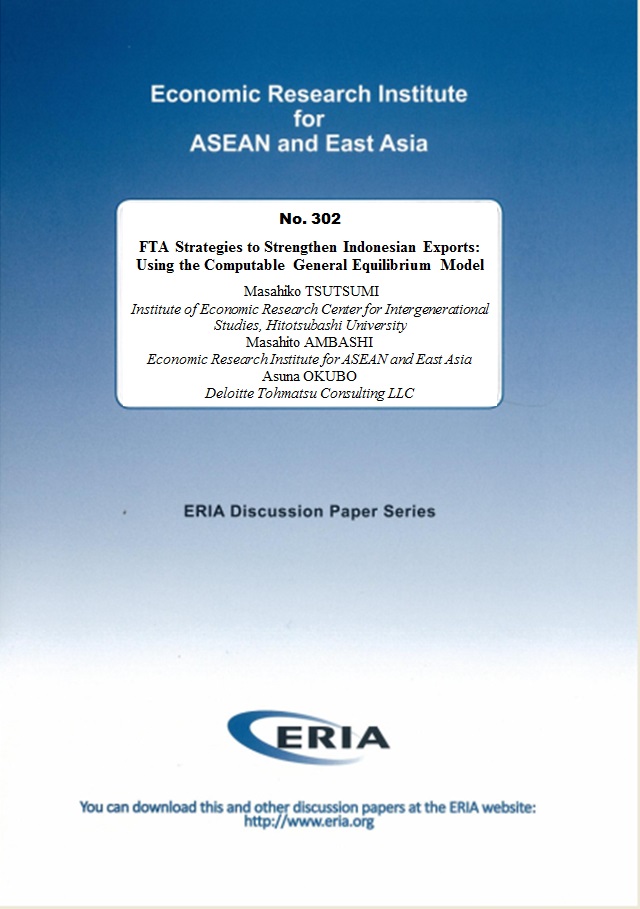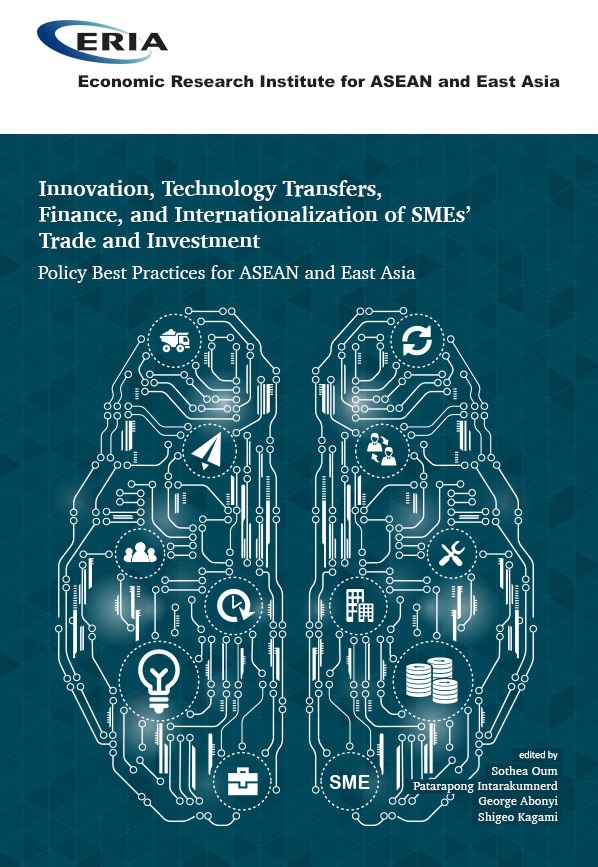Changes in Trade and Investment Policies in Thailand and the Implications for Medium-term Growth

Date:
5 August 2022Category:
Thailand, Investment, TradeType:
Discussion PapersTags:
Thailand, FTAs, EEC, Investment Promotion, Investment, TradePrint Article:
This paper addresses the noticeable changes in trade and investment policies in Thailand in the new millennium and assesses their impact. These changes began with trade policy changes from the World Trade Organization to free trade agreement (FTA)-induced liberalisation, followed by changes in investment policies, all of which are to boost firms’ productivity and medium-term growth. Our results suggest that the policy changes are yet to produce the output the government expects. The signed FTAs’ impact on trade has been limited so far and has occurred selectively on certain product lines, as did the FTA-induced direct investment. Similarly, changes in investment policies had the impact of enticing direct investment but this varied across investors’ nationalities. The impact on firm productivity is also limited and found only for investment promotion policies. Our analysis highlights the role of traditional tools, i.e. trade openness, research and development, and skills upgrading, in fostering firm productivity. Whilst FTAs and investment promotion could be used as a catalyst for firms to enhance productivity, other supporting factors are also needed.
Changes in Trade and Investment Policies in Thailand and the Implications for Medium-term Growth




